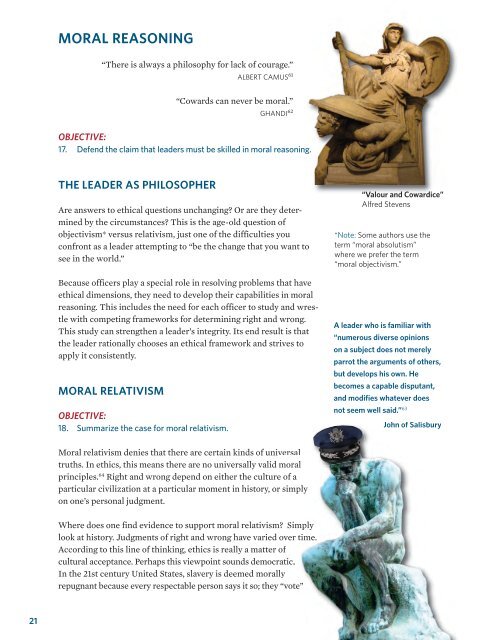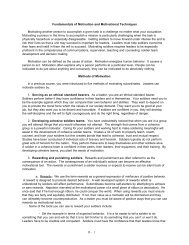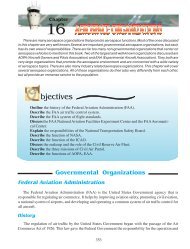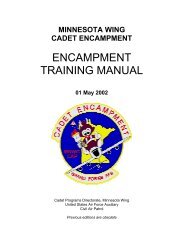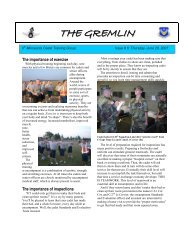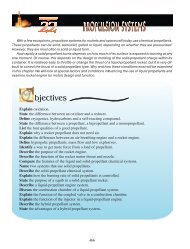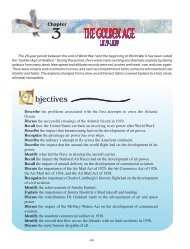Layout 1 - Civil Air Patrol
Layout 1 - Civil Air Patrol
Layout 1 - Civil Air Patrol
You also want an ePaper? Increase the reach of your titles
YUMPU automatically turns print PDFs into web optimized ePapers that Google loves.
07-Chapter 9 Reboot Attempt pp 13-end_<strong>Layout</strong> 1 5/4/12 12:40 Page 21<br />
MORAL REASONING<br />
“There is always a philosophy for lack of courage.”<br />
ALBERT CAMUS 61<br />
“Cowards can never be moral.”<br />
GHANDI 62<br />
OBJECTIVE:<br />
17. Defend the claim that leaders must be skilled in moral reasoning.<br />
THE LEADER AS PHILOSOPHER<br />
Are answers to ethical questions unchanging Or are they determined<br />
by the circumstances This is the age-old question of<br />
objectivism* versus relativism, just one of the difficulties you<br />
confront as a leader attempting to “be the change that you want to<br />
see in the world.”<br />
Because officers play a special role in resolving problems that have<br />
ethical dimensions, they need to develop their capabilities in moral<br />
reasoning. This includes the need for each officer to study and wrestle<br />
with competing frameworks for determining right and wrong.<br />
This study can strengthen a leader’s integrity. Its end result is that<br />
the leader rationally chooses an ethical framework and strives to<br />
apply it consistently.<br />
MORAL RELATIVISM<br />
OBJECTIVE:<br />
18. Summarize the case for moral relativism.<br />
“Valour and Cowardice”<br />
Alfred Stevens<br />
*Note: Some authors use the<br />
term “moral absolutism”<br />
where we prefer the term<br />
“moral objectivism.”<br />
A leader who is familiar with<br />
“numerous diverse opinions<br />
on a subject does not merely<br />
parrot the arguments of others,<br />
but develops his own. He<br />
becomes a capable disputant,<br />
and modifies whatever does<br />
not seem well said.” 63<br />
John of Salisbury<br />
Moral relativism denies that there are certain kinds of universal<br />
truths. In ethics, this means there are no universally valid moral<br />
principles. 64 Right and wrong depend on either the culture of a<br />
particular civilization at a particular moment in history, or simply<br />
on one’s personal judgment.<br />
Where does one find evidence to support moral relativism Simply<br />
look at history. Judgments of right and wrong have varied over time.<br />
According to this line of thinking, ethics is really a matter of<br />
cultural acceptance. Perhaps this viewpoint sounds democratic.<br />
In the 21st century United States, slavery is deemed morally<br />
repugnant because every respectable person says it so; they “vote”<br />
21


